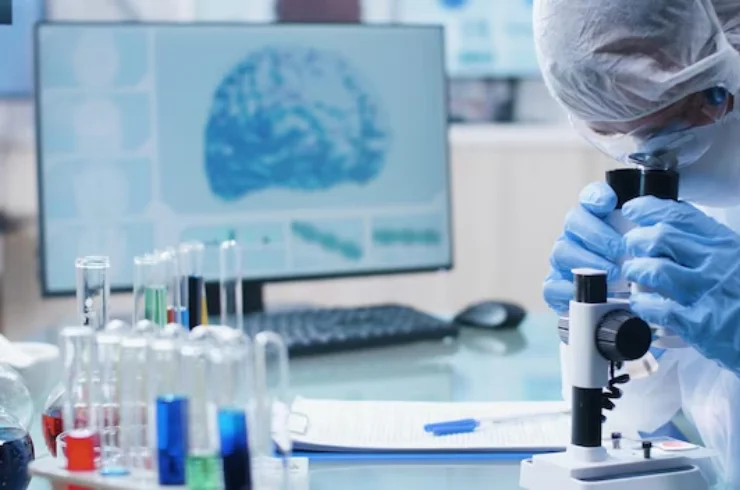Cinical Biochemistry

Clinical Biochemistry is a branch of laboratory medicine that focuses on the analysis of bodily fluids, such as blood, urine, and cerebrospinal fluid, to diagnose, monitor, and manage various diseases. It plays a crucial role in understanding the biochemical processes in the human body and provides essential information for clinical decision-making.
Clinical biochemistry involves the measurement of various biomarkers, enzymes, metabolites, and proteins that reflect the metabolic and physiological status of an individual. These substances can be indicators of normal or abnormal bodily functions, making them invaluable for identifying a range of health conditions.
Some of the key areas of clinical biochemistry include:
Electrolytes and Acid-Base Balance: Measurement of ions such as sodium, potassium, chloride, and bicarbonate to assess the body’s electrolyte levels and acid-base status, which are critical for cellular function and overall homeostasis.
Metabolic Markers: Analysis of glucose, lipids (cholesterol, triglycerides), and other metabolites to monitor conditions such as diabetes, hyperlipidemia, and metabolic disorders.
Kidney Function Tests: Tests like blood urea nitrogen (BUN), creatinine, and uric acid provide information about kidney health and can help diagnose kidney diseases or dehydration.
Liver Function Tests: Enzymes like alanine aminotransferase (ALT), aspartate aminotransferase (AST), alkaline phosphatase (ALP), and bilirubin levels help evaluate liver function, detect liver diseases, and monitor the effects of drugs or alcohol.
Hormone Analysis: Measurement of hormones, such as thyroid hormones (TSH, T3, T4), insulin, cortisol, and reproductive hormones, to assess endocrine function and diagnose conditions like thyroid disorders, diabetes, and infertility.
Cardiac Markers: Biomarkers such as troponin, creatine kinase (CK), and B-type natriuretic peptide (BNP) are used to diagnose heart conditions like myocardial infarction (heart attack) or heart failure.
Protein Analysis: Total protein, albumin, and globulin levels can provide insights into nutritional status, liver function, and immune response. Electrophoresis is used to separate different proteins and diagnose conditions like multiple myeloma or other plasma cell disorders.
Enzyme Studies: Enzyme levels, such as lactate dehydrogenase (LDH), amylase, and lipase, help in diagnosing conditions affecting specific organs, such as pancreatitis or muscle injury.
Toxicology and Drug Monitoring: Clinical biochemistry also involves monitoring the levels of drugs, toxins, or alcohol in the body to ensure therapeutic efficacy or detect poisoning or overdose.
Overall, clinical biochemistry provides vital insights into a patient’s health and is essential for diagnosis, monitoring disease progression, and determining appropriate treatment plans. It also plays a role in preventive healthcare, allowing for early detection of potential health issues.



